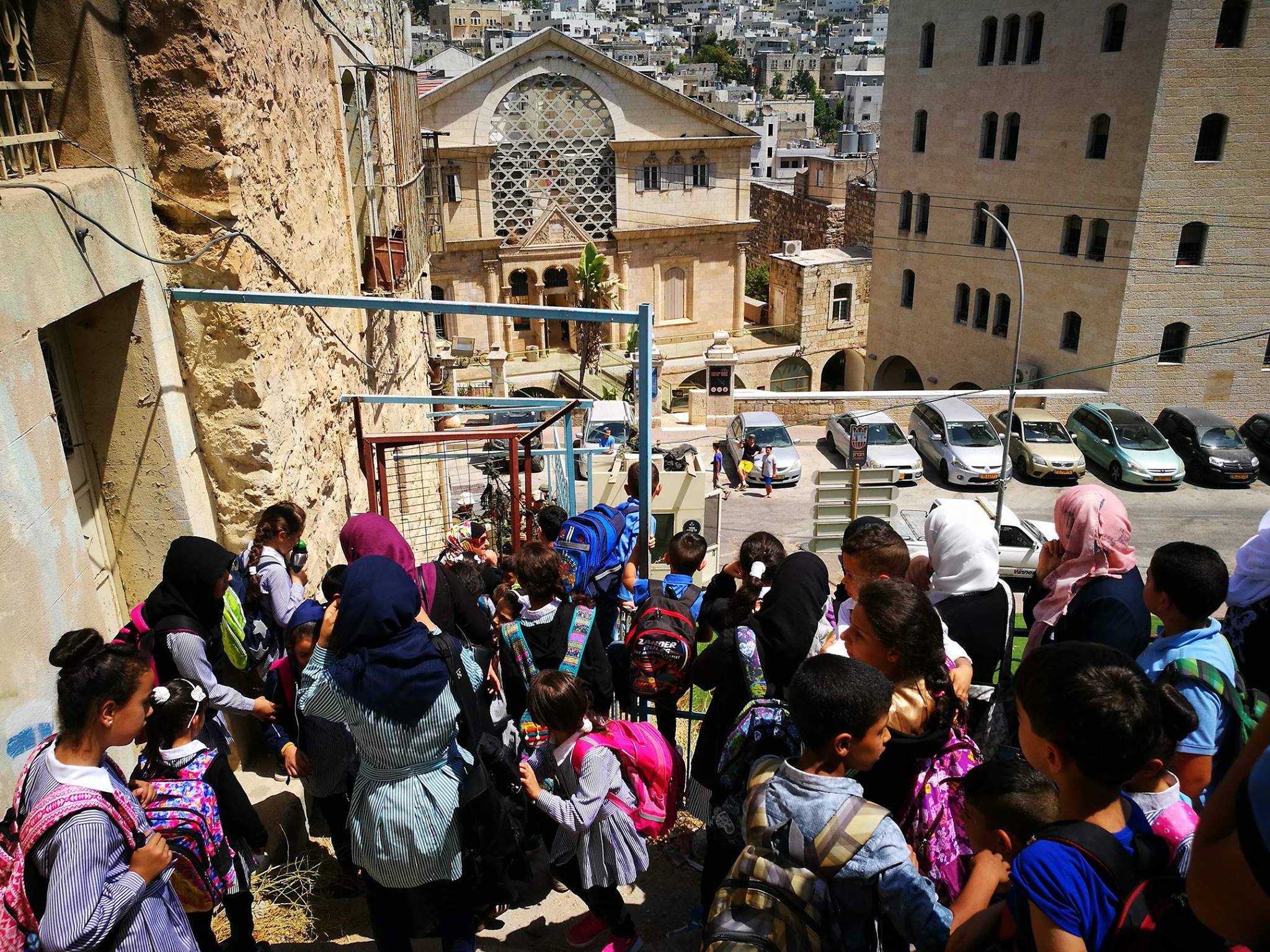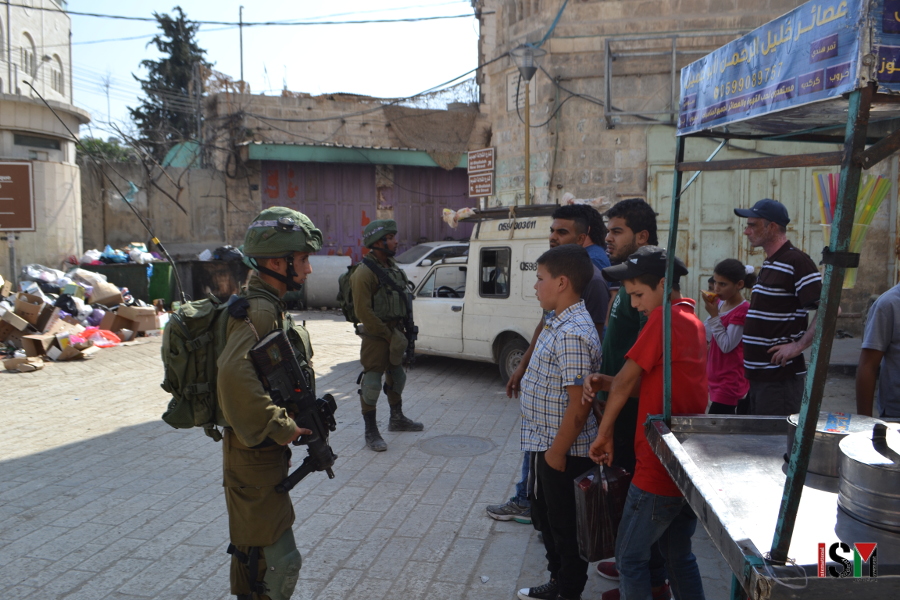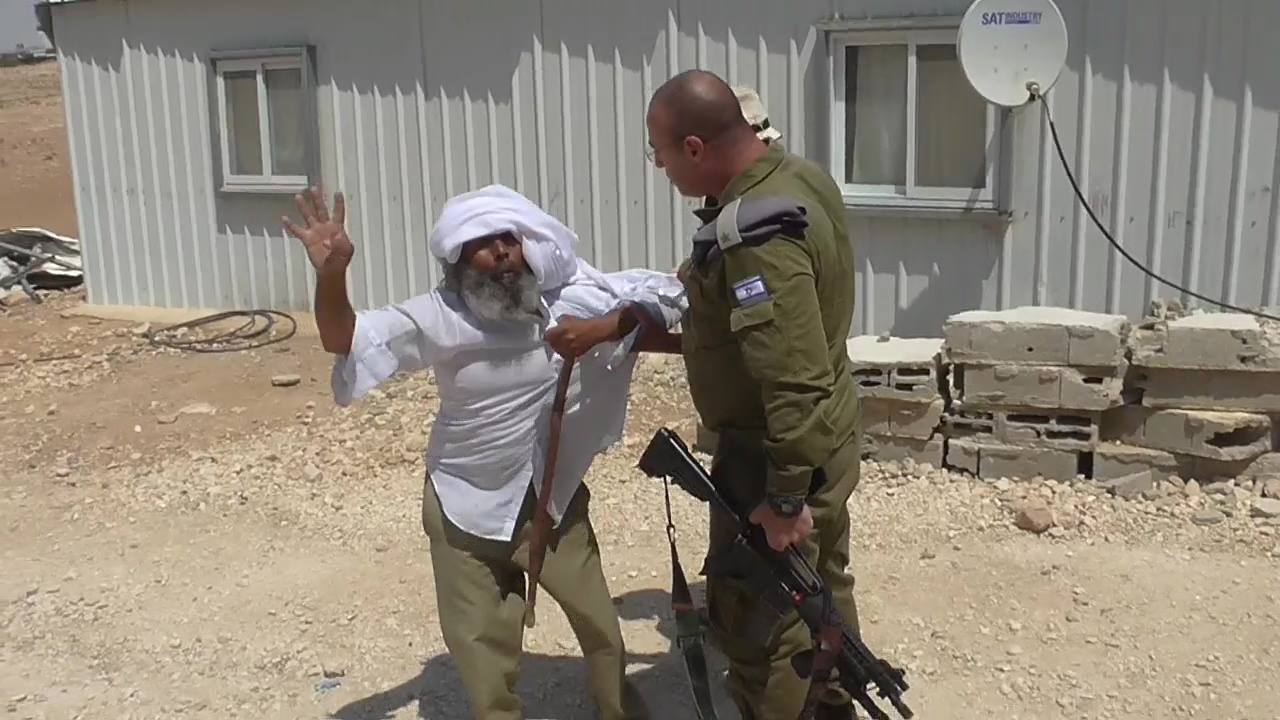Tag: Hebron
-
Right to education severely impeded for Qurtuba school students
29th August 2017 | International Solidarity Movement, al-Khalil team | Hebron, occupied Palestine Israeli forces in occupied al-Khalil (Hebron) are severely restricting, for the second day in a row, the freedom of movement for Palestinian students and teachers at Qurtuba school. Whereas on Monday students and teachers were detained by Israeli forces for almost half…
-
Israeli forces arrest 3 children, and harass Palestinians in occupied Hebron 2nd day in a row
24th August 2017 | International Solidarity Movement, al-Khalil team | Hebron, occupied Palestine Israeli soldiers, for the second day in a row, invaded the old town in Hebron (al-Khalil), arresting four people. The occupation forces blocked the main road for 4 hours restricting the movement of the Palestinians. The Israeli forces used stun grenades to…
-
Update: Umm Al-Kheir: soldier attacks elderly man
23rd August 2017 | International Solidarity Movement, al-Khalil-team | Umm Al-Kheir, occupied Palestine In the demolition threatened village, Umm Al-Kheir, in the south Hebron Hills, a military truck of the occupation forces arrived in the village to check buildings for potential demolitions. Suliman Eid Hathaleen, a 70-year old resident tried to stop them, but was violently…



